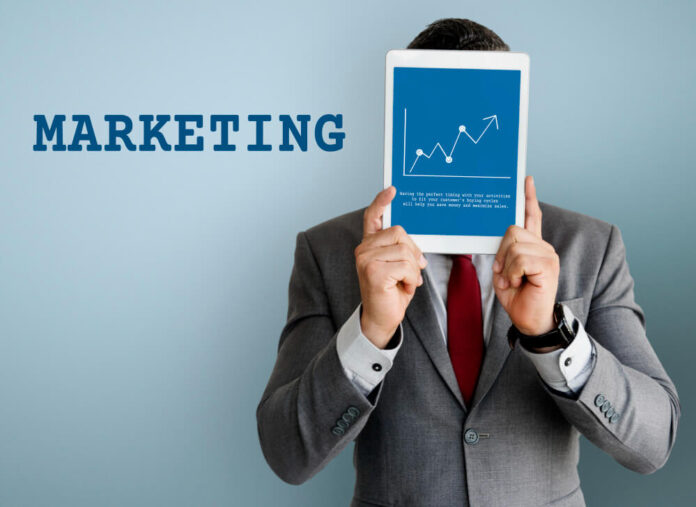Personalized marketing has become an essential practice for companies trying to engage with their audience more effectively in B2B marketing. Businesses may improve customer engagement, boost conversion rates, and establish enduring relationships by customizing messages and experiences to each individual customer’s interests and habits. This blog defines customized marketing, discusses important tactics to use, and looks ahead at future trends that will shape its development.
What Is Personalized Marketing?
Personalized marketing refers to the practice of using customer data and insights to create tailored marketing messages and experiences. Leveraging data from various sources—such as purchase history, browsing behavior, and demographic information—allows businesses to deliver relevant content that resonates with individual preferences. This approach goes beyond traditional marketing tactics, focusing on creating unique experiences for each customer.
Key Benefits of Personalized Marketing
- Enhanced Customer Experience: Businesses can provide a more enjoyable and relevant experience for their customers by addressing individual needs and preferences.
- Increased Conversion Rates: Personalized content is more likely to capture attention and drive action, leading to higher conversion rates.
- Stronger Customer Relationships: Businesses can foster loyalty and long-term relationships by showing that they understand and value their customers.
Key Strategies for Implementing Personalized Marketing
1# Leverage Customer Data
To effectively personalize marketing efforts, businesses need to collect and analyze customer data. This can include:
- Behavioral Data: Insights gained from tracking user interactions on websites and social media.
- Demographic Information: Data related to age, gender, location, and other personal attributes.
- Purchase History: Understanding what customers have bought in the past can inform future marketing efforts.
2# Segment Your Audience
Segmentation involves dividing your audience into distinct groups based on shared characteristics. This enables more targeted messaging and can include factors such as:
- Industry Type: Tailor messages based on the specific needs of different industries.
- Buying Stage: Craft content that addresses the unique concerns of customers at various stages of the buying journey.
3# Use Dynamic Content
Dynamic content changes based on user behavior and preferences. This can enhance personalization by ensuring that users see the most relevant information. Examples include:
- Personalized Email Campaigns: Sending tailored recommendations based on past purchases.
- Website Personalization: Displaying products or content that align with user interests when they visit your site.
4# Implement Marketing Automation
Marketing automation tools can help streamline the process of delivering personalized content. These tools can:
- Automate Email Campaigns: Schedule and send personalized messages based on user behavior.
- Track Engagement: Monitor how customers interact with your content and adjust strategies accordingly.
5# Test and Optimize
Continuous testing and optimization are crucial for effective personalized marketing. Businesses should:
- A/B Test Campaigns: Experiment with different messages to see which resonates best with your audience.
- Analyze Results: Use data analytics to assess the effectiveness of personalized marketing efforts and make adjustments as needed.
Examples of Successful Personalized Marketing
1# Amazon
Amazon is a leader in personalized marketing, using sophisticated algorithms to recommend products based on users’ past purchases and browsing history. This strategy not only enhances user experience but significantly boosts sales through tailored suggestions.
2# Netflix
Netflix employs personalized recommendations to enhance viewer engagement. By analyzing viewing habits, Netflix suggests shows and movies that align with individual tastes, making the platform more appealing to users.
3# HubSpot
HubSpot utilizes personalized content in its email marketing campaigns. By segmenting its audience and delivering targeted content, HubSpot increases engagement and conversion rates, showcasing the effectiveness of personalized marketing in B2B environments.
Future Trends in Personalized Marketing
1# Increased Use of AI and Machine Learning
Artificial intelligence and machine learning technologies will play a crucial role in advancing personalized marketing. These technologies can analyze vast amounts of data and predict customer behavior more accurately, enabling even more tailored marketing efforts.
2# Privacy-Centric Personalization
With growing concerns around data privacy, businesses will need to balance personalization with transparency and ethical practices. Companies that prioritize customer consent and data protection will build trust and loyalty.
3# Omnichannel Experiences
Future personalized marketing strategies will focus on creating seamless experiences across multiple channels. By ensuring that customers receive consistent messaging and experiences—whether on email, social media, or websites—businesses can enhance engagement and satisfaction.
4# Hyper-Personalization
As data analytics become more advanced, hyper-personalization will become the norm. This involves delivering content so tailored that it feels uniquely crafted for each individual, taking into account real-time behavior and preferences.
Conclusion
Personalized marketing is no longer a luxury but a necessity for businesses aiming to thrive in the competitive B2B landscape. Businesses can enhance customer engagement, boost conversions, and foster long-term relationships with their customers by using consumer data, implementing focused strategies, and adopting emerging trends. As the digital landscape evolves, staying ahead of personalized marketing strategies will be crucial for ongoing success.
I hope you find the above content helpful. For more such informative content please visit HR Global Hub.











